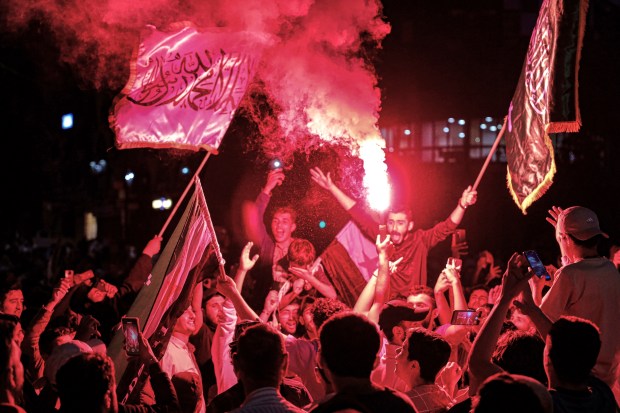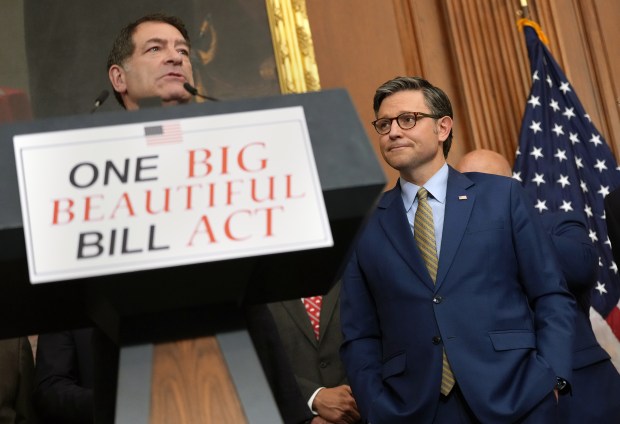Chicagoland’s war on cigarettes is going about as well as its wars on drugs, gangs and guns.
In December, the Evanston City Council approved a ban on flavored tobacco products, including menthol, starting April 1. Whatever city leaders’ (presumably noble) intentions are with this move, it points to a larger problem. Despite Chicagoland’s experience grappling with the failures of the Prohibition, governments here have adopted policies that not only don’t work but also actively make the problem much worse — for smokers and nonsmokers alike.
Perhaps the most egregious example of failure is the Cook County cigarette tax. By itself, the $3 cigarette tax is among the highest in the nation; after adding city, state and federal taxes, the total taxes on a pack of cigarettes bought in Chicago are the highest in the nation at about $7.16 per pack. Indeed, this tax scheme is so absurd that cities in Cook County represent four of the top five highest cigarette tax burdens in the U.S.
Nonsmokers might find it hard to sympathize with those shelling out nearly $20 for a pack of cigarettes, but the economic and social consequences of this policy are shouldered by all residents of Cook County. Local businesses, particularly small retailers, bear the brunt of this tax in the form of lost business, as smokers facing higher prices will opt to cross into neighboring counties or states with lower tax rates to buy their cigarettes. This phenomenon not only reduces local business revenue but also shifts the tax income pool to other regions.
Moreover, the cigarette tax inadvertently cultivates a fertile ground for a black market. The significant price difference spearheaded by the tax becomes an incentive for illicit trade, further undermining legal sales while also posing a threat to public safety, which is already a challenge for Chicagoland retailers.
Illicit trade can exacerbate negative interactions with the police. Speaking on Evanston’s flavor tobacco ban, Clyde McLemore, founder of the Black Lives Matter Lake County chapter, warned, “This will create an illegal market where cigarettes will be sold on the street. … This will bring unnecessary contact with your law enforcement.”
Local and state governments aren’t safe from this either. A recent report from the Tax Foundation found that excessive cigarette taxes, along with policies such as flavor bans, often lead to increases in cigarette smuggling and a decrease in state tax revenue. Illinois remains one of the worst offenders, with more than $300 million lost to illicit trade in 2021.
Unfortunately for Cook County’s most impassioned anti-smoking advocates, Chicago is a victim of its own geography — it borders Indiana and isn’t far from Wisconsin, both of which have lower cigarette tax burdens. Of course, Illinois also borders Missouri, known as the mecca of cigarette smuggling, as well as the relatively low-tax states of Iowa and Kentucky. There is no tax for traveling over state lines (much to the dismay of local and state policymakers, surely), nor is there any practical way for the city’s law enforcement to contain the inflow of cigarettes.
The county cigarette tax also raises social equity issues. So-called sin taxes aiming to discourage certain behaviors such as smoking are mostly felt by those from the lowest levels of income and education, representing only a sliver of the targeted tax base. These vulnerable populations and others like them are already more likely to smoke cigarettes and have an especially difficult time quitting; less money in their pockets as a result of regressive and punitive taxes only exacerbates stress and encourages smoking, and so the cycle continues.
Regular cigarette smoking obviously poses a significant health risk that should not be encouraged, nor should tobacco companies be protected or rewarded for their predatory marketing tactics that entice youths and other vulnerable populations. But simply taxing and banning nicotine products is not working.
Illinois, much like my home state of California, has never met a tax or ban it didn’t like, and this has led to a whole laundry list of problems that have been made only worse through nearsighted regulations. Rather than pushing tired regulatory frameworks like Cook County’s cigarette tax, Chicagoland should adopt a more holistic approach involving proven tobacco harm reduction strategies including education, counseling and cessation products.
The Prohibition taught us that people who really want something will get it, one way or another; that is as true today as it was 100 years ago. Driving up the price of cigarettes (limiting legal supply), rather than helping people reduce their dependence on nicotine (influencing demand), is irresponsible policymaking at best. If Chicago’s dried-up attempt to police alcohol is any indication, its ongoing backward approach to regulating cigarettes is likely to go up in smoke — as it should.
Gabe Benitez is a fundraising professional at the University of Chicago, as well as a volunteer with the Chicago Covenants project and Crossing Party Lines.




